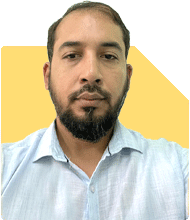Ramalingam Kalirajan |4140 Answers |Ask -Follow
Mutual Funds, Financial Planning Expert - Answered on Jun 30, 2024
He has an MBA in finance from the University of Madras and is a certified financial planner.
He is the director and chief financial planner at Holistic Investment, a Chennai-based firm that offers financial planning and wealth management advice.... more

hi my name is shiva and my age is 26,my financial condition is not good but my monthly salary is 16000 and my expenses around 1200 ,my pf-90000 please guide me for how to manage and invest my amount to give good financial back up
Understanding Your Current Financial Situation
Your monthly salary is Rs. 16,000, and your expenses are Rs. 1,200. This means you have a good amount left after covering your expenses, which is a great starting point for building your savings and investments. Your PF amount is Rs. 90,000, which is a solid base.
Monthly Budgeting and Saving
1. Create a Monthly Budget
Track your income and expenses. Use a simple notebook or an app to note down all your expenditures.
2. Essential and Non-Essential Expenses
List down your essential expenses like food, rent, and utilities. Allocate a fixed amount for these each month.
3. Set a Savings Goal
Aim to save at least 20% of your income every month. With your current salary, this would be around Rs. 3,200.
Building an Emergency Fund
1. Importance of an Emergency Fund
An emergency fund is crucial. It acts as a financial buffer for unexpected expenses like medical emergencies or job loss.
2. How Much to Save
Aim to save at least 3-6 months’ worth of expenses. Given your expenses are Rs. 1,200, your emergency fund should be around Rs. 7,200 to Rs. 14,400.
3. Where to Keep It
Keep your emergency fund in a savings account or a liquid fund where you can easily access it when needed.
Investing for the Future
1. Start with Small Investments
Even small amounts can grow significantly over time. Begin with what you can comfortably set aside each month.
2. Mutual Funds
Mutual funds are a good option for long-term wealth creation. Start with a Systematic Investment Plan (SIP) in mutual funds. This allows you to invest a fixed amount monthly.
Benefits of Regular Mutual Funds
1. Professional Management
Regular funds are managed by professionals. They have the expertise to select the best stocks and bonds.
2. Convenience
Investing through a Mutual Fund Distributor (MFD) who has CFP credentials offers convenience. They handle the paperwork and provide regular updates.
3. Diversification
Mutual funds offer diversification, reducing risk by spreading investments across different assets.
Avoiding Direct Funds
1. Lack of Guidance
Direct funds require you to choose and manage your investments. This can be challenging without proper knowledge and experience.
2. Time-Consuming
Managing direct funds requires regular monitoring and adjustments. This can be time-consuming and stressful.
Building a Diversified Portfolio
1. Equity Mutual Funds
Invest in equity mutual funds for long-term growth. These funds invest in stocks, which have the potential for higher returns.
2. Debt Mutual Funds
Consider debt mutual funds for stability. These funds invest in bonds and are less volatile than equity funds.
3. Balanced Funds
Balanced funds invest in both equities and debt. They provide a balanced approach, offering growth with some stability.
Regular Review and Rebalancing
1. Periodic Review
Regularly review your investments. Check the performance of your mutual funds at least once a year.
2. Rebalancing
Rebalance your portfolio if needed. If your equity funds have grown significantly, you might want to move some gains into debt funds to maintain balance.
Retirement Planning
1. Start Early
The earlier you start saving for retirement, the better. Your PF is a good start, but you should also consider other retirement savings options.
2. PPF and EPF
Public Provident Fund (PPF) and Employee Provident Fund (EPF) are excellent options for long-term retirement savings.
Health and Life Insurance
1. Health Insurance
Ensure you have adequate health insurance coverage. Medical emergencies can deplete your savings quickly.
2. Life Insurance
Consider life insurance if you have dependents. Term insurance is a good option as it provides high coverage at a low cost.
Avoiding Common Financial Mistakes
1. High-Interest Debt
Avoid high-interest debt like credit cards and personal loans. If you have any, prioritize paying them off quickly.
2. Impulse Spending
Be mindful of impulse spending. Stick to your budget and think twice before making non-essential purchases.
Financial Discipline and Patience
1. Discipline
Stay disciplined with your savings and investments. Consistency is key to building wealth over time.
2. Patience
Investing is a long-term game. Be patient and let your investments grow. Avoid the temptation to withdraw funds prematurely.
Learning and Growing
1. Financial Education
Continuously educate yourself about personal finance and investing. Read books, attend seminars, and follow financial news.
2. Seeking Advice
Don’t hesitate to seek advice from a Certified Financial Planner. They can provide personalized guidance based on your financial goals.
Final Insights
Shiva, you're doing a great job by thinking about your financial future at such a young age. With careful planning, disciplined savings, and smart investments, you can build a strong financial foundation.
Start with small, manageable steps. Create a budget, save regularly, and invest wisely. Regularly review your progress and adjust as needed. Remember, the key to financial success is consistency and patience.
Best Regards,
K. Ramalingam, MBA, CFP,
Chief Financial Planner,
www.holisticinvestment.in
You may like to see similar questions and answers below
Sunil Lala |193 Answers |Ask -Follow
Financial Planner - Answered on May 16, 2024
Ramalingam Kalirajan |4140 Answers |Ask -Follow
Mutual Funds, Financial Planning Expert - Answered on Jun 05, 2024
Ramalingam Kalirajan |4140 Answers |Ask -Follow
Mutual Funds, Financial Planning Expert - Answered on Jun 25, 2024
Aasif Ahmed Khan |22 Answers |Ask -Follow
Tech Career Expert - Answered on Jul 02, 2024
Aasif Ahmed Khan |22 Answers |Ask -Follow
Tech Career Expert - Answered on Jul 02, 2024
Aasif Ahmed Khan |22 Answers |Ask -Follow
Tech Career Expert - Answered on Jul 02, 2024
Ramalingam Kalirajan |4140 Answers |Ask -Follow
Mutual Funds, Financial Planning Expert - Answered on Jul 02, 2024
Aasif Ahmed Khan |22 Answers |Ask -Follow
Tech Career Expert - Answered on Jul 02, 2024
Aasif Ahmed Khan |22 Answers |Ask -Follow
Tech Career Expert - Answered on Jul 02, 2024
Aasif Ahmed Khan |22 Answers |Ask -Follow
Tech Career Expert - Answered on Jul 02, 2024
Aasif Ahmed Khan |22 Answers |Ask -Follow
Tech Career Expert - Answered on Jul 02, 2024
Aasif Ahmed Khan |22 Answers |Ask -Follow
Tech Career Expert - Answered on Jul 02, 2024
Kanchan Rai |267 Answers |Ask -Follow
Relationships Expert, Mind Coach - Answered on Jul 02, 2024











.jpg)









